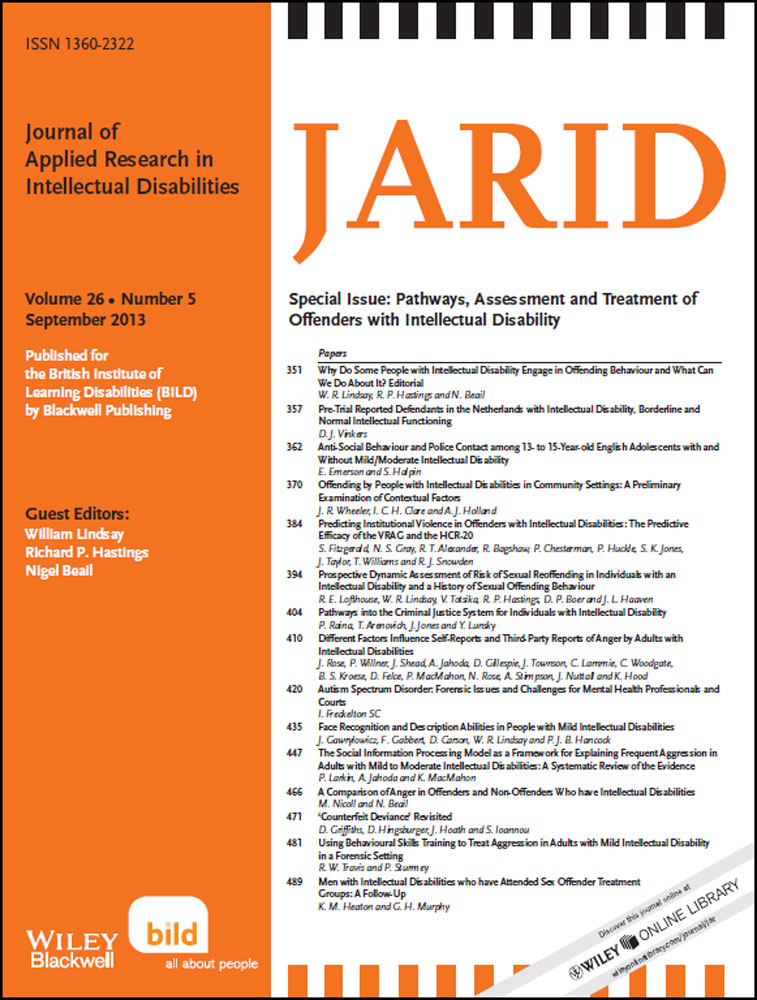A Comparison of Anger in Offenders and Non-Offenders Who have Intellectual Disabilities
Abstract
Background
There is growing evidence of the effectiveness of cognitive behavioural therapy to treat anger in offenders with intellectual disabilities. The aim is to lower anger levels; the rationale is that this will reduce recidivism. However, the hypothesis that anger levels amongst offenders are higher than non-offenders has not been tested.
Method
The study utilizes a case-comparison design to examine whether levels of anger are higher amongst people with intellectual disabilities who have offended in comparison with those who have not offended. Anger levels are compared for 29 offenders with intellectual disabilities and 27 non-offenders with intellectual disabilities (all male).
Results
No differences were found between offenders and non-offenders on measures of anger. The offending group was shown to have higher levels of aggression.
Conclusions
Results suggest that there is no difference in levels of anger between offender and non-offenders to begin with. The limitations of the study are discussed, but the implication of the study questions the legitimacy of the rationale to utilize anger treatment to reduce recidivism in offenders with intellectual disabilities.




